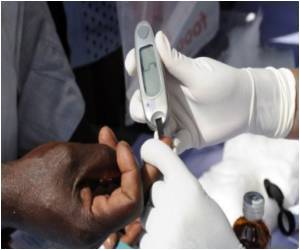The risk of developing gestational diabetes could be predicted through a prior metabolic screening that would help in taking preemptive action before conception.

Previous research has shown that women who develop GDM during pregnancy are more likely to develop Type 2 diabetes after pregnancy.
The study is among the first to measure cardio-metabolic risk factors before pregnancy in women 18-30 years of age without diabetes who later became pregnant and reported whether they had developed GDM.
"Our study suggests that women may benefit from a focus on care before conception that would encourage screening for metabolic abnormalities before pregnancy, rather than only during pregnancy," said study lead investigator Erica P. Gunderson of the Kaiser Permanente Division of Research in Oakland.
"Because weight loss is not advised, and the medication and behavioural treatment options are more limited during pregnancy, the time to prevent gestational diabetes is before pregnancy begins," said Gunderson.
"Screening and treatment of metabolic risk factors before pregnancy to prevent GDM may help reduce its lasting adverse health effects on children, by possibly improving the uterine environment," she added.
Advertisement
Participant characteristics - including lifestyle, socio-demographic, medical conditions, medication use, family history of diabetes, pregnancies and births and GDM status, as well as clinical assessments, body measurements and blood specimens - were obtained at baseline.
Advertisement
Among overweight women, 26.7 percent with one or more cardio-metabolic risk factors before pregnancy developed gestational diabetes versus 7.4 percent who did not have cardio-metabolic risk factors.
Researchers also found no association between pre-pregnancy blood pressure or hypertension and risk of GDM, possibly due to the low prevalence of these conditions in healthy women of reproductive age.
The study was published in the American Journal of Epidemiology.
Source-ANI















